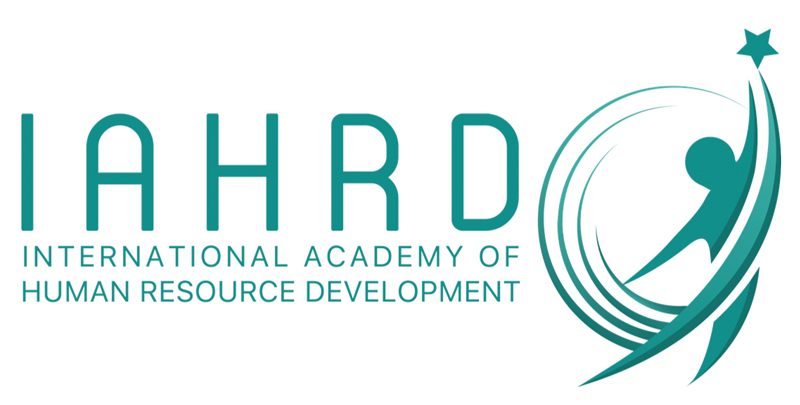
Fraud Detection and the Crucial Role of Internal Audit
Fraud Detection and the Crucial Role of Internal Audit
Introduction :
This course is introduced to you by the International Academy of Human Resources Development (IAHRD). Our courses are specially designed to meet your needs, explained to you by experts with a long experience in the field.
The course will provide you with a language, framework and insight which will put you well ahead of others in this highly competitive environment.In the aftermath of the recession and financial crisis, growth, business and personal results are far more challenging than before. All this increases the crucial need for internal auditing and its essential role in fraud detection. This course will help you learn all about internal auditing and it's roles and responsibilities on the short and long run.
Objectives :
After attending this course, participants will be able to:
- Avoid crisis and increase the level of transparency.
- Analyze risks to prevent their occurrence.
- Apply a clear strategic approach to achieve personal and business growth.
- Improve their performance as managers, leaders and entrepreneurs.
Content:
Module 1:
- The role of internal auditing in ERM.
- Legitimate internal audit roles with safeguards.
- Analyzing risks and controls through internal auditing.
Module 2:
- The scope of internal auditing in ERM.
- A clear framework for strategy development.
- Conducting a SWOT analysis.
Module 3:
- Where are our present and future markets?
- Where are our present and future customers?
- Segmentation – the driver of business success.
Module 4:
- Designing the plan.
- Implementing the plan.
- Finalizing the plan.
- Precise cash management.
Module 5:
- Regular Interpretation for the corporate accounts.
- The right decision to make.
- Overcoming the challenges.
- Case study.
Who Should Attend?
- Managers who are about to move out of a specialist role into abroader general management role.
- Managers or department heads with cross-functionalresponsibilities who need to develop a big picture outlook.
- Managers who have been identified as having potential for generalmanagement.
- Managers who are looking to develop and broaden their general
management skills.
times [ Online ]
| from | to | price $ | venue | actions |
|---|---|---|---|---|
| 2025-04-06 | 2025-4-10 | 2,500 | Online | join enquire |
| 2025-04-13 | 2025-4-17 | 2,500 | Online | join enquire |
| 2025-04-20 | 2025-4-24 | 2,500 | Online | join enquire |
| 2025-04-27 | 2025-5-1 | 2,500 | Online | join enquire |
| 2025-05-04 | 2025-5-8 | 2,500 | Online | join enquire |
| 2025-05-11 | 2025-5-15 | 2,500 | Online | join enquire |
| 2025-05-18 | 2025-5-22 | 2,500 | Online | join enquire |
| 2025-05-25 | 2025-5-29 | 2,500 | Online | join enquire |
| 2025-06-01 | 2025-6-5 | 2,500 | Online | join enquire |
| 2025-06-08 | 2025-6-12 | 2,500 | Online | join enquire |
| 2025-06-15 | 2025-6-19 | 2,500 | Online | join enquire |
| 2025-06-22 | 2025-6-26 | 2,500 | Online | join enquire |
| 2025-06-29 | 2025-7-3 | 2,500 | Online | join enquire |
| 2025-07-06 | 2025-7-10 | 2,500 | Online | join enquire |
| 2025-07-13 | 2025-7-17 | 2,500 | Online | join enquire |
| 2025-07-20 | 2025-7-24 | 2,500 | Online | join enquire |
| 2025-07-27 | 2025-7-31 | 2,500 | Online | join enquire |
| 2025-08-03 | 2025-8-7 | 2,500 | Online | join enquire |
| 2025-08-10 | 2025-8-14 | 2,500 | Online | join enquire |
| 2025-08-17 | 2025-8-21 | 2,500 | Online | join enquire |
| 2025-08-24 | 2025-8-28 | 2,500 | Online | join enquire |
| 2025-08-31 | 2025-9-4 | 2,500 | Online | join enquire |
| 2025-09-07 | 2025-9-11 | 2,500 | Online | join enquire |
| 2025-09-14 | 2025-9-18 | 2,500 | Online | join enquire |
| 2025-09-21 | 2025-9-25 | 2,500 | Online | join enquire |
| 2025-09-28 | 2025-10-2 | 2,500 | Online | join enquire |
| 2025-10-05 | 2025-10-9 | 2,500 | Online | join enquire |
| 2025-10-12 | 2025-10-16 | 2,500 | Online | join enquire |
| 2025-10-19 | 2025-10-23 | 2,500 | Online | join enquire |
| 2025-10-26 | 2025-10-30 | 2,500 | Online | join enquire |
| 2025-11-02 | 2025-11-6 | 2,500 | Online | join enquire |
| 2025-11-09 | 2025-11-13 | 2,500 | Online | join enquire |
| 2025-11-16 | 2025-11-20 | 2,500 | Online | join enquire |
| 2025-11-23 | 2025-11-27 | 2,500 | Online | join enquire |
| 2025-11-30 | 2025-12-4 | 2,500 | Online | join enquire |
| 2025-12-07 | 2025-12-11 | 2,500 | Online | join enquire |
| 2025-12-14 | 2025-12-18 | 2,500 | Online | join enquire |
| 2025-12-21 | 2025-12-25 | 2,500 | Online | join enquire |
| 2025-12-28 | 2026-1-1 | 2,500 | Online | join enquire |
